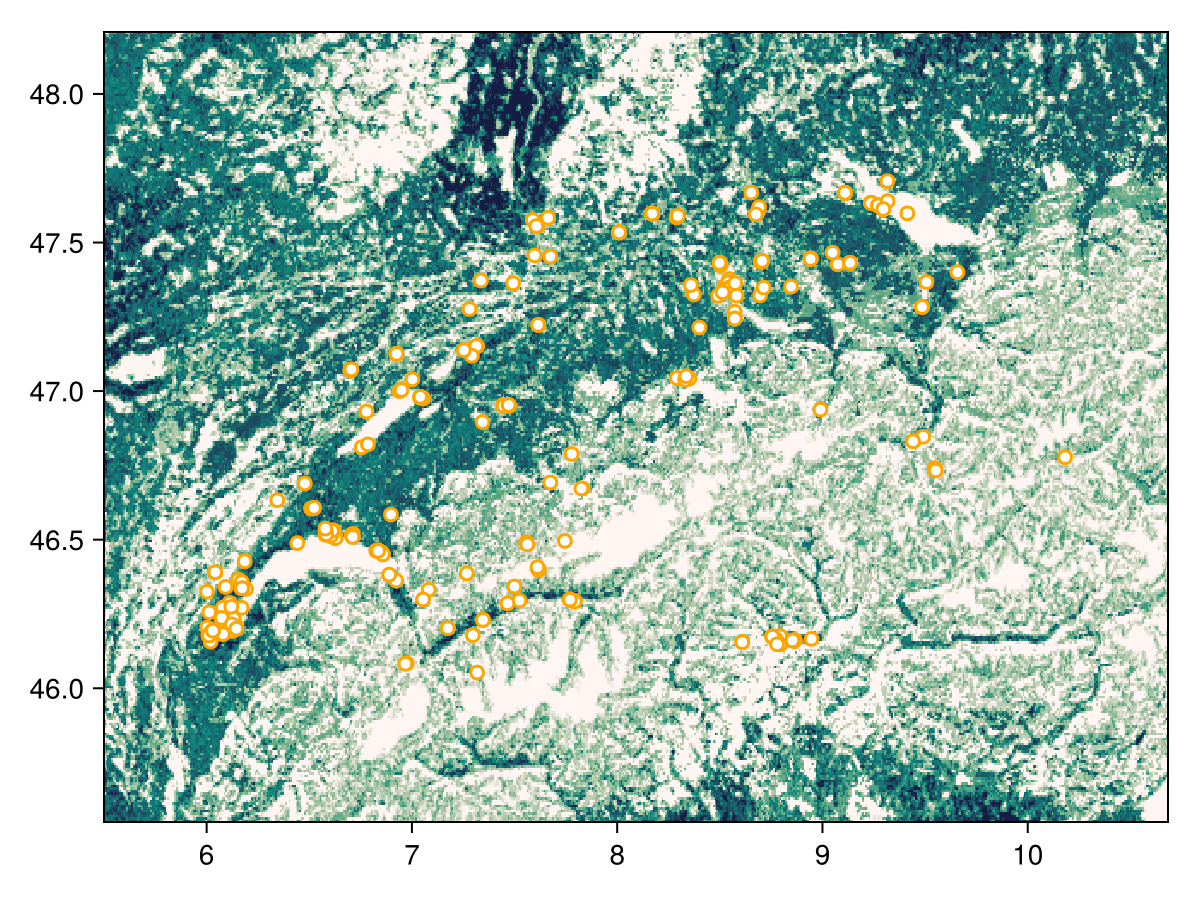Bounding boxes
using SpeciesDistributionToolkit
using CairoMakieThe boundingbox method accepts most types that SpeciesDistributionToolkit knows about, and returns a tuple:
occ = occurrences("hasCoordinate" => true, "country" => "CH", "limit" => 300)
SpeciesDistributionToolkit.boundingbox(occ)(left = 6.001386, right = 10.182211, bottom = 46.052918, top = 47.706857)We can also specify a padding (in degrees) that is added to the bounding box:
SpeciesDistributionToolkit.boundingbox(occ; padding = 1.0)(left = 5.001386, right = 11.182211, bottom = 45.052918, top = 48.706857)Why specify the module?
Makie and CairoMakie export a method called boundingbox. To remove any ambiguities when the method is called at a time where any Makie backed is loaded, we must specific which module we are calling it from. Note that the dispatch signature of the method implemented by SpeciesDistributionToolkit is not ambiguous.
This is useful to restrict the part of a layer that is loaded, here one of the fractional layers from the EarthEnv landcover dataset:
L = SDMLayer(
RasterData(EarthEnv, LandCover);
layer = "Cultivated and Managed Vegetation",
SpeciesDistributionToolkit.boundingbox(occ; padding = 0.5)...,
)🗺️ A 319 × 622 layer with 198418 UInt8 cells
Projection: +proj=longlat +datum=WGS84 +no_defsNote that the bounding box is returned in WGS84, but the function to load any part of a layer will handle the conversion.

Code for the figure
heatmap(L; colormap = :tempo)
scatter!(occ, color=:white, strokecolor=:orange, strokewidth=1.5)The same method also applies to polygons:
cnt = PolygonData(OpenStreetMap, Countries)
CHE = getpolygon(cnt, country="Switzerland")
SpeciesDistributionToolkit.boundingbox(CHE; padding = 0.5)(left = 5.455832004547119, right = 10.992294311523438, bottom = 45.31795883178711, top = 48.30845260620117)SpeciesDistributionToolkit.boundingbox Function
boundingbox()Returns a tuple with coordinates left, right, bottom, top in WGS84, which can be used to decide which part of a raster should be loaded.
sourceboundingbox(occ::AbstractOccurrenceCollection; padding=0.0)Returns the bounding box for a collection of occurrences, with an additional padding.
sourceboundingbox(occ::Vector{<:AbstractOccurrence}; padding=0.0)Returns the bounding box for a vector of abstract occurrences, with an additional padding.
sourceboundingbox(layer::SDMLayer; padding=0.0)Returns the bounding box for a layer, with an additional padding.
source